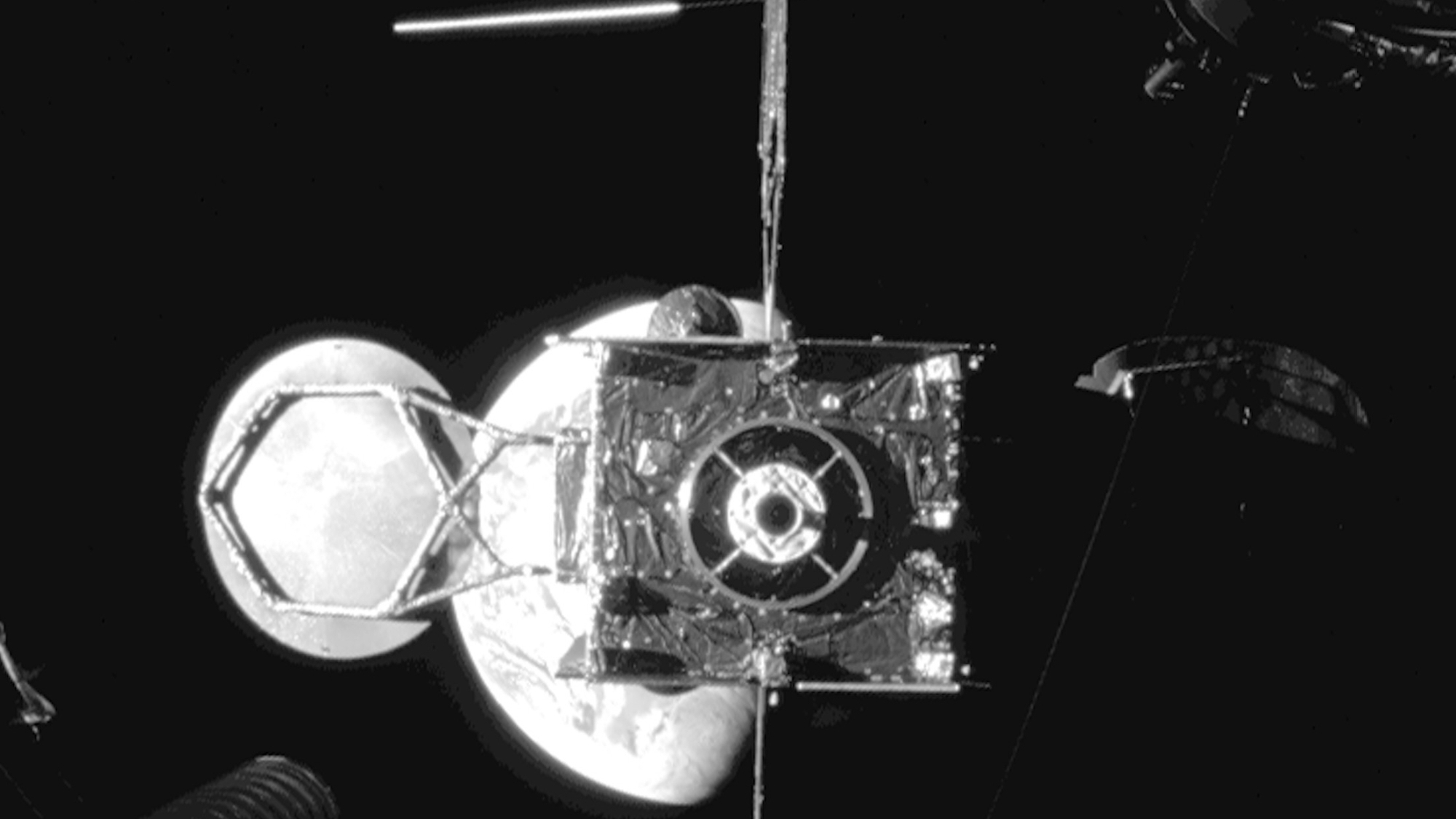Young Engineer Leads Effort To Make Space a Topic of Presidential Debate

WASHINGTON — Have space policy geeks managed to hijack theupcoming CNN/Politico.com presidential debates? In the run up to the Wednesday, Jan. 31 debate between the remaining Democraticpresidential candidates, 20 of the 25 most popular viewer-submitted questionswere about U.S. space policy. On the Republican side, space questions accountedfor 11 of the 25 top spots, edging out questions about the economy and Iraq, although by mid-day Monday, Jan. 29, space questions had slipped in the rankings.
While it is far fromclear whether the CNN/Politico.com moderators will ask candidatesanything about space during the back-to-back debates in Los Angeles, if they do, a 24-year-old engineer in Seattle probably deserves as much praise as anyonefor making it happen.
John Benac, a 2007college graduate and new father who works as a manufacturing engineer forBoeing on the 737 program, has harnessed the power of the Internet to put spaceon the radar of the organizers of the upcoming event.
Benac told Space News hehas been passionate about space since visiting NASA's Johnson Space Center as a Boy Scout and eventually hopes to land a job in Houston working on theinternational space station program or Constellation, the U.S. space agency's effort to return to the Moon.
But it was not untilreading Robert Zubrin's books "The Case for Mars" and "EnteringSpace" in the span of two weeks in December that Benac was inspired totranslate his passion for space into political action. At the urging of hiswife, a fan of Democratic presidential hopeful Sen. Barack Obama of Illinois, Benac said he decided to write Obama using the Mars Society's online fax tool toencourage the candidate to support NASA and space exploration.
Not long after, uponcoming home from a ribbon-cutting ceremony at a local Obama campaign office,Benac said he found the CNN/Politico.com debate submittal Web site and realizedthat there was not a single NASA or space-related question. "I decided todo my best to mobilize the space community on the Web, drafted a letter andsent it out to as many people as I could," Benac said.
Benac's call-to-arms readin part: "[W]e have a tremendous opportunity to put Mars on the politicalmap for the presidential candidates. I have submitted a question for the Republicanand Democratic debates that are happening in Los Angeles on January 30th. Theway that this debate works is that people submit and vote for the questionsthat they like online, and the candidates are asked the ones with the mostvotes. Please tell everyone you think would act on this."
Get the Space.com Newsletter
Breaking space news, the latest updates on rocket launches, skywatching events and more!
Benac's plea to "putMars on the political map" was quickly picked up and reposted by the MarsSociety and the Web site NASAWatch.com, driving more traffic to theCNN/Politico.com Web site, resulting in the posting of new questions and votesfor favorites.
Last week,the No. 1 most popular question for the Democratic candidates was: "Willyou continue to support the NASA Vision for Space Exploration with its goals ofexploring the Moon, Mars, and beyond? Do you see a connection betweenexploration and education?"
On the Republican side itwas: "Do you support the NASA Vision for Space Exploration — whichincludes the goal of extending our human spaceflight program to returning tothe Moon, going on to Mars, and beyond?"
As of mid-day Monday,however, space questions had fallen in the rankings. While space dominates theDemocratic questions, occupying 20 of the 25 top spots, space had ceded the No.1 position to a question about Hurricane Katrina.
On the Republican side,space accounted for only six 6 of the top 25 questions with only one of thosemaking the top 10.
Jeff Foust, aWashington-based space analyst who writes and edits the spacepolitics.com Website in his free time, said Benac deserves credit for "getting the ballrolling on this." But Foust also said it remains to be seen whether thehigh turnout space questions have received in the CNN/Politico.com pollactually will translate into support for space exploration.
"Thequestion is, what happens to all this after the 31st, particularly if thedebate organizers decide to skip the space questions?" Foust asked. "CanBenac and others find ways to sustain what momentum might have been created bythis effort?" Benac is not stopping at gaming the CNN/Politico.com debatesubmittal Web site. In mid January he launched the actionforspace.com Web sitewhere voters can go to brush up on the issues and learn where and when thecandidates will be appearing in their area so that they can stop by and put ina plug for NASA and space exploration. In its first week since going live,Benac's Web site has attracted more than 1,000 unique visitors.
- SPACE.com VideoInterplayer: NASA's STS-122: Columbus Sets Sail for ISS
- TestYour Smarts: The Space Shuttle Countdown Quiz
- VIDEO:ISS Commander Peggy Whitson Takes Charge
Join our Space Forums to keep talking space on the latest missions, night sky and more! And if you have a news tip, correction or comment, let us know at: community@space.com.
Brian Berger is the Editor-in-Chief of SpaceNews, a bi-weekly space industry news magazine, and SpaceNews.com. He joined SpaceNews covering NASA in 1998 and was named Senior Staff Writer in 2004 before becoming Deputy Editor in 2008. Brian's reporting on NASA's 2003 Columbia space shuttle accident and received the Communications Award from the National Space Club Huntsville Chapter in 2019. Brian received a bachelor's degree in magazine production and editing from Ohio University's E.W. Scripps School of Journalism.









